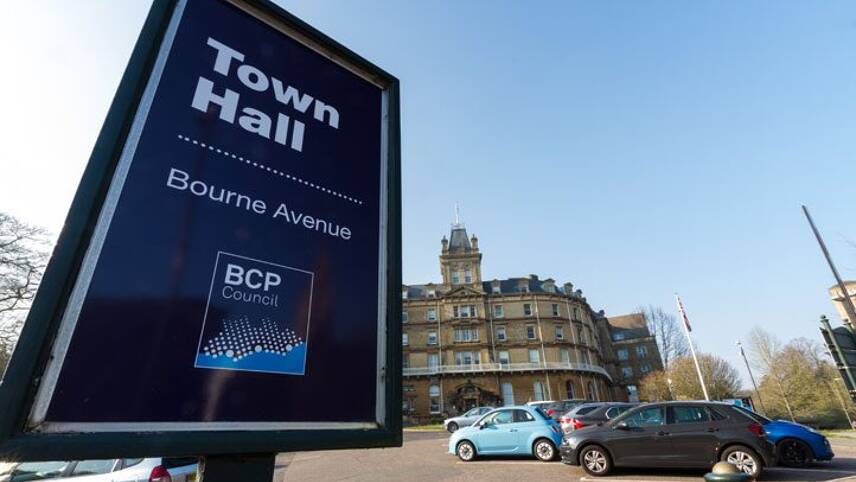Register for free and continue reading
Join our growing army of changemakers and get unlimited access to our premium content

Budgets are too stretched because of the cost of living crisis
A new report from Innovate UK and the Green Finance Institute (GFI), published this week, finds that there is an appetite amongst local authorities to deliver net-zero emissions by 2050, but that an ability to do so has been massively constrained by a lack of finance.
Since April 2019, over 300 councils in the UK have declared a climate emergency. But commitments to net-zero and decarbonisation have not been met with the required levels of action, with the new report noting that green projects and infrastructure are struggling from a lack of budget.
Local authority budgets were already stretched going into 2022, the report found, with the cost-of-living crisis only compounding spending constraints further.
As such, the report is calling on the Government to introduce measures that unlock new technical assistance capacity and innovative financial solutions to derisk spending on green projects.
It calls on Government to “simplify” how it supports investment for net-zero projects, arguing that a single gateway for funding and information should be introduced to provide financial and regulatory support.
Innovate UK’s innovation lead Sophie Kempthorne, said: “Enabling local authorities to play a greater role in driving the transition to net zero presents a wealth of opportunity – not just to tackle climate change, but to create local economic growth and ensure that the transition is a just and prosperous one.
“But to capture the opportunity will require better support for local authorities, plugging some of the gaps identified in this report, as well as more innovation in new and under-utilised financing mechanisms to bridge the gap between public and private funding for local net zero projects.”
On finance, the BBC reported last summer that UK councils are collectively facing shortfalls of some £3bn in their budgets for 2023-4.
A separate survey of decision-makers at 50 local authorities in the UK recently found that most have not begun properly delivering their net-zero transition plans on the ground, with funding constraints being the most common barrier to progress.
The new report from Innovate UK and GFI – Mobilising local net zero investments – provides practical guidelines for local authorities regarding the net-zero funding available, but does reiterate that private sector funding and new enabling policies are essential.
The report notes the “urgent need” to consider additional private finance sources to deliver zero outcomes locally, which in turn will enable local authorities to rollout net-zero projects that support their communities.
Authority assistance
Earlier this month, the UK100 published a communique that argued the case for a new ‘Net Zero Local Powers Bill’ that would require local authorities to report on their emissions and would provide them with new powers to roll out projects designed to reduce emissions in line with net-zero.
A Net Zero Local Powers Bill, the communique stipulates, should “permit, oblige and resource relevant levels of authority to undertake climate change action to satisfy the Climate Change Act, meet carbon budgets and deliver an effective pathway to net-zero”. Focus areas include unified emissions reporting and better cross-departmental alignment across Whitehall.
The UK100 is calling for a long-term plan that delivers on the Conservative Party’s 2019 manifesto commitment of £9bn for improved building energy efficiency. While the £1bn Public Sector Decarbonisation Scheme is running as planned, the Green Homes Grant, which was initially allocated a £2bn pot, issued less than £200m in vouchers before its premature closure.
Additionally, the Environmental Audit Committee has recently called for the Government to produce a long-term funding plan for local authority climate action, to support policy frameworks like the Net-Zero Strategy and give cash-strapped councils the confidence they need to invest in projects like electric vehicle (EV) charging networks, active transport networks and district heat networks.


This applies across the public sector, not just local authorities, but also NHS, police, fire, highways and any other public body.
All would benefit from a long term finance strategy for low and zero carbon projects that allows delivery of net zero in a strategised and planned way, without the challenges and costs of applying for funds such as PSDS and LCSF.
What is not clear, as due to budgets many councils Net Zero aspirations are only internally focused, is if this article refers to national targets or just the operational emissions.
We need councils to be made responsible for emissions from within their boundaries along with access to expertise and suitable grants. It would be wrong that they be saddled with debit to deliver this transition.